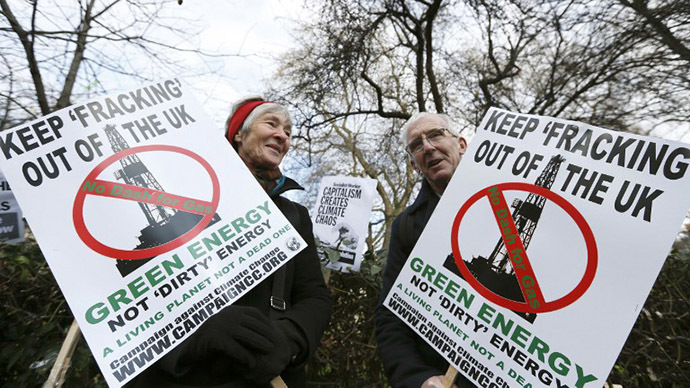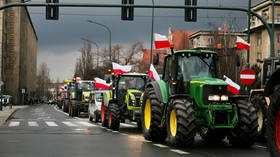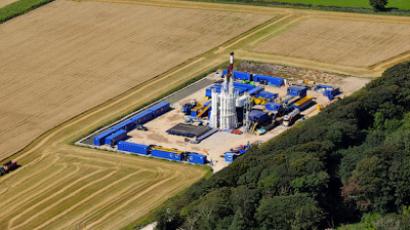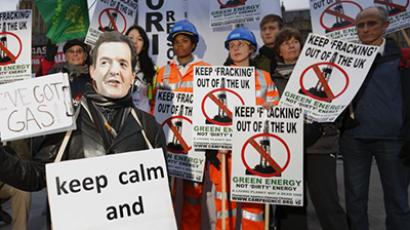UK shale gas riches: Companies ‘ready’ to pay £100,000 to each affected community

The UK has doubled its shale gas estimates in England’s north, prompting energy companies to start offering cash to communities that allow exploration, British media report. Ecologists slam the plan as a “bribe.”
Styling the payment as “community benefits,” energy
companies will provide a one-off payment of £100,000 when an
exploratory well is drilled, as well as one percent of revenues
should exploration be successful.
If the drilling is successful, the industry is ready to pay out
£1.1bn in further payments over the following 25 years, according
to the Telegraph. Over the next 20 years, 100 sites could be
drilled.
“It could certainly look like a bribe to a lot of communities
very worried by the impact of fracking. I do not think many
communities will be willing to trade what will be a relatively
small amount of money for the risk,” Friends of the Earth’s
Andrew Pendleton told the daily.
However, fears have been voiced that villages and localities
might not receive the full compensation package for localized
fracking procedures should they be affected. The energy companies
will grant some cash payouts to county-wide bodies instead – a
‘regional fund’ – fuelling concerns that those suffering the
direct impact of the procedure will lose out, according to
Politics.co.uk
Thus, some of the compensating money could be spent on projects
like the construction of a swimming pool in a nearby town, as
proposed by energy minister Michael Fallon. “There will be an
element that is very local to the residents that are directly
affected by the drilling,” Fallon said.
It was found on Thursday that Britain has doubled its northern
shale gas estimates. In northern England alone, the country had
1,300 trillion cubic feet of shale gas in underground reserves,
according to the British Geological Survey.
Communities will not want money for the ecological risks as noise
pollution and possible earthquakes, points out Andrew Pendleton
of Friends of the Earth.
On Wednesday, a newly published study also said that household
drinking water that comes from wells near known fracking sites
contains levels of methane six times greater than what’s common
elsewhere.
House prices near potential extraction points have been expected
to slump.
Fracking involves blasting a combination of water, chemicals, and
sand into shale rocks. While the aim is to force the rocks to
release shale gas, there are some unintended side effects - the
practice has already been linked to earthquakes as well as water
pollution.














